Most people aged 18 to 30 from eligible countries (including the UK, USA, Canada, most Western Europe and Scandinavian countries, Japan, Taiwan and Korea) can apply for the Australian Working Holiday Visa, allowing them to work while they travel in Australia for one to two years. The visa lets you work for the same amount of money as an Australian worker, with the same rights. If you want to stay a second year, you need to work in certain rural areas for three months during your initial year. As long as you know what you're entitled to and avoid the small number of shoddy employers, it's easy to find yourself sharing a drink with locals while watching a mighty Australian sunset after work for many fulfilling weeks in between travels.
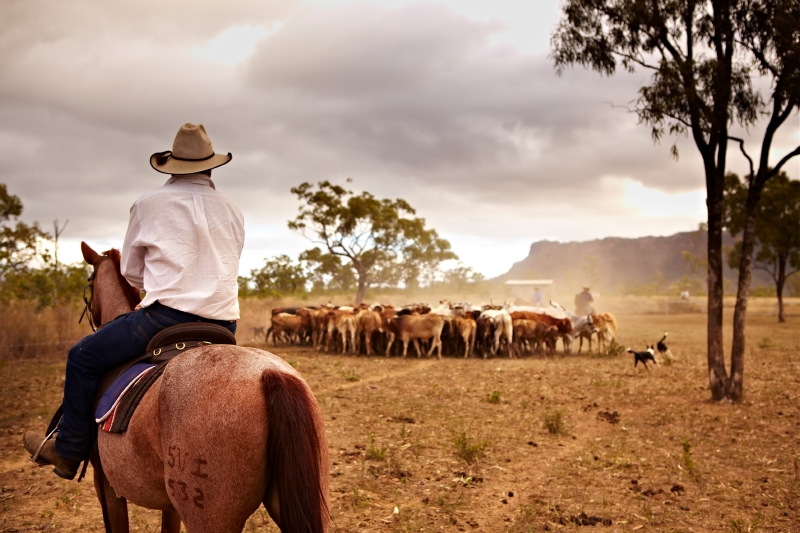
It’s easy to overlook that word ‘work’ in Working Holiday Visa and concentrate instead on ‘holiday’. Yet there are loads of rewards with working overseas that are even greater than being there on a vacation.
Sophie Schmitt, who is French, says she picked fruit and took care of children on her Australian Working Holiday Visa. She says her experiences benefited her beyond seeing Australia. “The good thing about the Working Holiday Visa is that you meet people out on the farm and then you meet them again down the track. People share tips. There is a sense of community. It’s better than just a holiday. Working gives you the opportunity to stay longer and discover more. You’re throwing yourself out there, and you learn! It changed my life. When I returned to France, I realised I can find a job anywhere because I thought, ‘I was travelling and working for that long. I can do anything’. It was the best thing I did for myself.”
Sophie does caution though that “people are unlikely to give you professional work knowing that you are going to leave at the end of the visa”. Instead she turned to nannying and child-care agencies in Melbourne, which would call her in the morning to ask if she was free for work that day. Unlike a regular job, where taking a day off is a no-no, Sophie confessed, “I’d just tell them I was unavailable if I didn’t need the money that week.”
Makoto, from Japan, works in a Japanese restaurant in Sydney but he has also picked fruit and helped teach archery to Japanese kids at weekend camps. He says he loves the Australian work culture. “Making friends and going out with them makes it a good experience here. Everything is so amazing for Japanese people because it is so different from our culture. You have to do everything by yourself – no friends, no family – but even this is a good experience.’
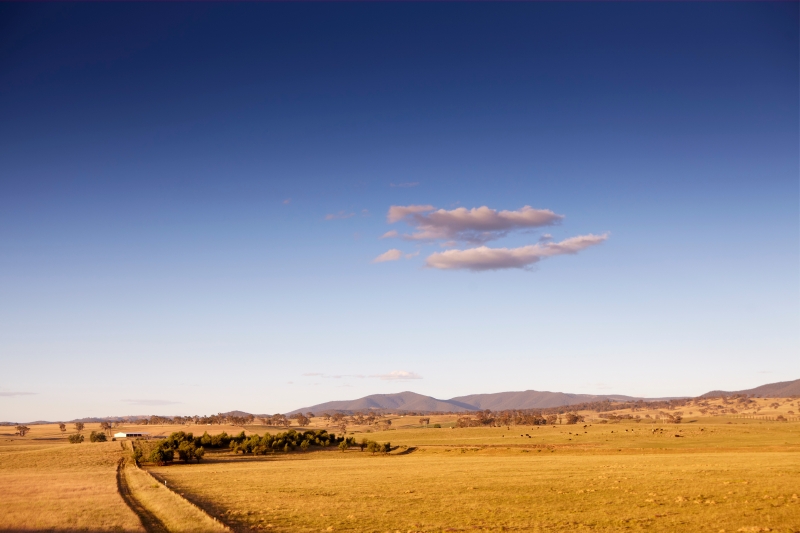
Maddy Busch from Collaroy Beachhouse YHA in Sydney says that a lot of travellers are surprised by how much they’ll get paid in Australia for labouring work, painting or gardening. “We see workers being paid A$20 to A$25 an hour. But then you have to balance that with the cost of living. It’s a lot higher here in Australia,” she warns.
Debi Forster, manager at Port Lincoln YHA in South Australia, helps her guests find local work but also tells it like it is. Working holiday makers working at a fish factory near her in 2014 were paid $21 an hour, ‘but it is smelly work. They sorted pilchards, which are frozen into 20kg blocks that they need to lift into a freezer. The smell goes all through your skin and clothes,” she explains. “I tell them, don’t wear any clothes that you want to keep when you leave here. And when they walk in the front door I say, ‘Shower!’.”
It doesn’t matter where you’re from, anybody working legally in Australia is entitled to the minimum wage. The hourly rate was raised in July 2014 to just over A$16 full time and A$21 for casual work. Whereas the minimum hourly wage in the UK is around £6 per hour; the US federal rate is just over US$7. The Australian minimum rate of pay can be even higher depending on the industry and the state. Employers in some types of work, such as hospitality, are currently paid a higher ‘penalty rate’ for working on a Saturday or Sunday. Working on a public holiday can see a worker paid a casual rate as high as A$37.95 an hour.
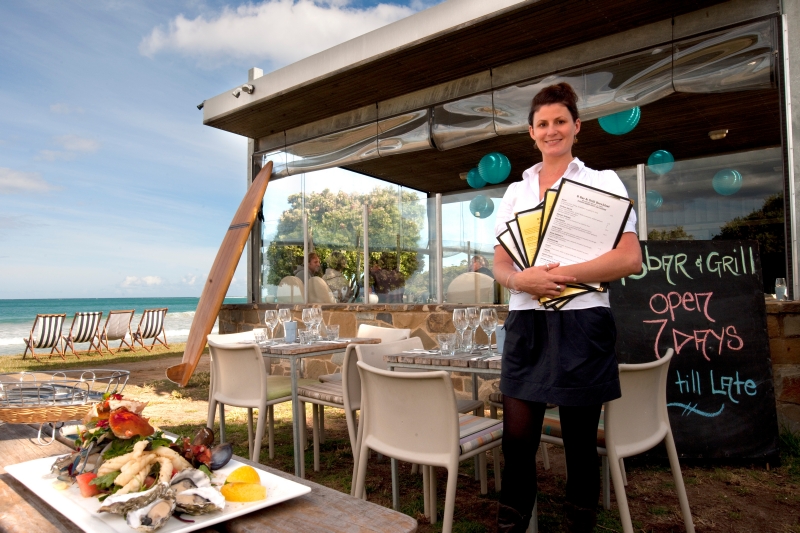
For blueberry picking, Hayden Ryan, accommodation manager at Plantation Backpackers in Coffs Harbour, New South Wales, says that “it depends mostly on the piece rate and the farm – and how well the crops are doing. If there are not many berries in the crops, you won’t be able to pick as many as quickly. I think a while ago some of the berries were A$5 for the piece rate, so A$5 per kilo. Picking at an average speed you would make A$17 an hour. But then again you may be slow as well.
What if you are only able to fill your buckets at a rate that means you earn less than the minimum hourly wage? If you’ve signed an agreement to work on a piece rate, the minimum wage doesn’t apply and you’ll only get paid for how much you pick, no matter how long it takes you. For more info see www.fairwork.gov.au.
It’s not all about fish packing and fruit picking, though. Your job could involve anything from dog walking or selling tickets at a carnival to household gardening, admin work or bar work and even selling sausages.
Tips
· Make sure you are being paid the right amount. Check the Australian minimum wage with www.fairwork.gov.au.
· Get your rate of pay in writing and, if working in agriculture, be clear if you are to be paid on an hourly or piece rate basis.
· Check noticeboards at hostels and on gumtree.com.au.
· A small number of hostels advertise themselves as a ‘working hostel’ such as Collaroy Beachhouse YHA in Sydney, which keeps a detailed spreadsheet to match job-seeking guests with employers. Let staff know that you are looking for work when you arrive. Some will help edit CVs to make sure it reads well, especially for those not fluent in English.
· Think about other employable skills you have such as a driver’s licence, teaching/coaching experience, or a diving licence.
· If you are going to work in hospitality where alcohol is served, you’ll need a Responsible Serving of Alcohol certificate, which can be completed online in some states for $60 to $129. Each state has a different authority. See the Commission for Gambling and Liquor Regulation for more information.
· Also consider carefully what you are physically willing to do. Note: Mango tree sap hurts.
· Save enough cash so that you don’t feel compelled to take a job that you really don’t want to do. Some extra money means you can relax a little while you wait for the right job.
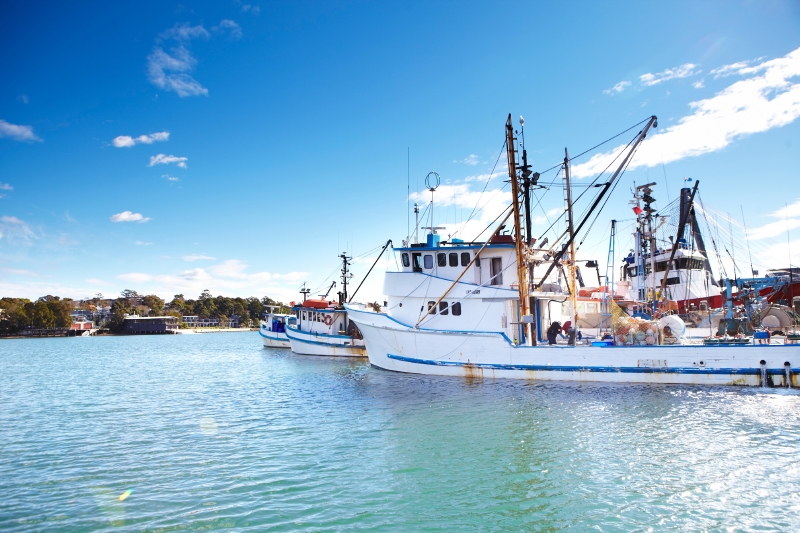
If you want to stay a second year in Australia it pays to work this out early. If you work three months in an approved industry within certain postcodes in your first year, you can apply for a second Working Holiday Visa and can then work anywhere you like in Australia. Plus you get to see Australia’s best asset: its natural beauty. The most common types of eligible ‘specified’ work that will enable you to get the coveted second Working Holiday Visa are fruit picking, fisheries, construction and mining.
Fruit picking is an easy-to-find option for working holiday makers to clock up the hours for the second visa. Queensland offers the greatest variety of fruit and plants to pick including avocados, cotton, custard apples, mangoes and melons.
Sophie worked picking bananas in Queensland with a friend. “Bananas? Never in my life again,” she says. “We were handling machetes from 5am till midday to avoid the heat, but we were so completely knackered by midday that we didn’t want to do anything else.” She also picked lychees. “Green ants would attack us, and they hurt. You’re covered in red sores in the end.”
Makoto worked a couple of hours outside of Cairns. “I know many people who did picking on a farm and gave up because it is so hard. But if you are lucky you can get good money, or get an easier job on the farm like packing the fruit, or driving a tractor.”
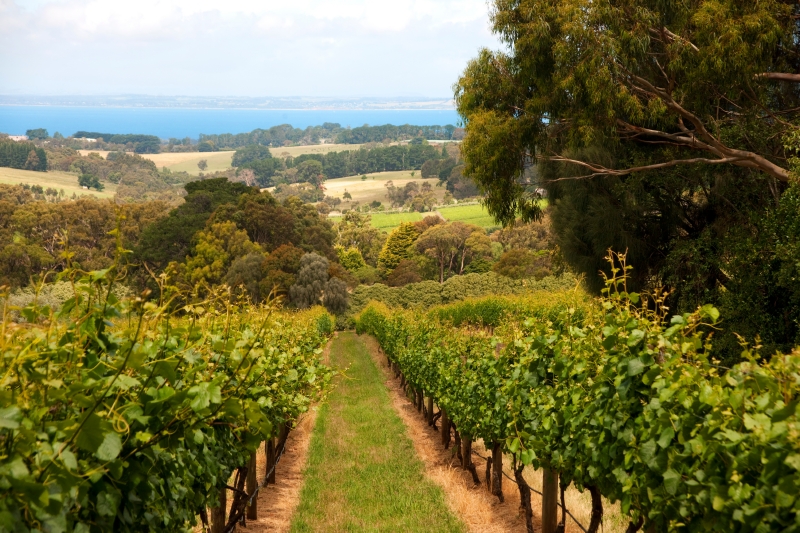
Debi from Port Lincoln YHA explains that people can also get ‘specified’ work to earn time towards their second year on the Working Holiday Visa. She’s helped people get jobs doing everything from working on prawn boats to looking after kangaroos. She helped two French girls land a gig working 10 hours a day at a local winery putting nets over the vines. “They got blisters on their fingers but they popped them and were looking forward to the next day!” she remarked. Nearby at the Glen Forest Tourist Park working holiday makers look after the kangaroos, koalas and other animals, cleaning out their pens and working in the kiosk.
Second-year tips
· Check the Harvest Trail for ‘specified’ work jobsearch.gov.au/harvesttrail.
· Keep payslips and any evidence of work you do. You will need to prove that you worked enough hours in the right industry and postcode.
· Check when fruit will be in season.
· Jobs in the wineries pruning the vines are usually between June and September, while grape harvesting is from January to April.
· Find out about the White Card – a safety requirement for construction work. See Safe Work SA for more information.
You will need an Australian bank account to get paid. This can take some time to organise so you should get on to this as soon as you arrive in Australia. You will also need a tax file number (TFN).
You have 28 days to give your first employer your TFN, otherwise you will be taxed at the highest tax rate. You can apply for a TFN in person, or online at www.ato.gov.au but only when you are already in Australia. Employers have to pay 9% ‘superannuation’ (retirement pension) to you too. You should be able to claim this or transfer it home when you leave the country. Ask your employers for a summary showing your total income and the amount of tax and superannuation withheld. There are Australian-based companies that can help with claiming back this money.
Anecdotal evidence suggests Australian customs can check your personal emails and phone messages for correspondence that proves – or disproves – that you are working legitimately under the Working Holiday Visa.
Unfortunately there are some stories of shoddy employers taking advantage of working holiday makers. Thankfully the dodgy employers are the minority and can be avoided by knowing your rights.
Sophie says, “When I arrived in Australia I had no idea about the minimum wage. I didn’t mind getting paid low because I loved just being there. But I had one guy trying to pay us just with sandwiches for picking fruit.”
If you come across a dodgy employer who tries to underpay you, it helps if you have somebody on your side. Debi says “I’ve heard about people getting paid only 60 cents an hour. I had one excited guy here who had just gotten a job from the noticeboard for $10 an hour. I told him: ‘You are not getting $10 an hour’ and rang up the employer to set him straight”.
Get as much information as possible before you agree to a job. Check what the rent will be if you’re staying on a farm and how much the extras cost like laundry or internet access. Some people have found a job and thought ‘great’, and found out later that they had to find their own transport there. You can get employers who try to make people work 15 hours a day on a ‘trial’ and don’t pay them for it.
Australia is generally safe, but it’s always better not to go to isolated locations alone. Don’t assume that just because a job is through a legitimate hostel or their noticeboard that the job itself pays fairly. Whoever you find the job through, ask around to see if someone else knows the employer, or someone who has worked with them before, and if they’re legitimate. “I think a lot of people get scammed because they’re looking to move on to another place and will take the first thing available in that area. I’ve heard people getting charged to get dropped off at their jobs and the brokers didn’t tell the workers about it beforehand,” Debi warns.
Tips to avoid the rip-offs
· Make sure the job terms are in writing, not just verbal, even if it’s just in an email.
· Make sure everything is set up ahead of time and you know what salary is guaranteed.
· The Australian Fair Work Ombudsman recommends not signing up for work with anybody that approaches you at regional airports or bus depots.
· Don’t put down money to ‘reserve’ a fruit-picking job or pay for fruit-picking accommodation up front.
For more information on the Australian Working Holiday Visa, see www.immi.gov.au.